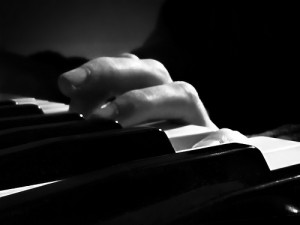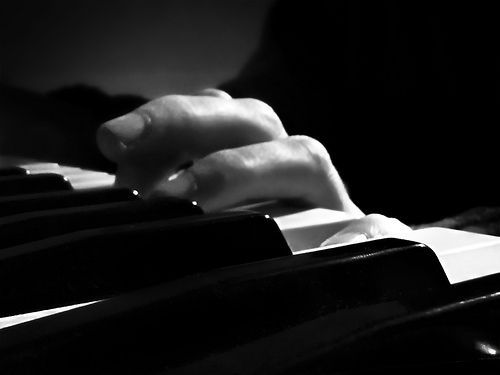 In the entries for last week’s giveaway I received a lot a wonderful feedback regarding Color In My Piano. Upon request, I’d like to start increasing the number of forum questions. Hooray! Rather than having a monthly question, I will try to pose a new question at least every other week (and maybe every week, if I can come up with enough questions!).
In the entries for last week’s giveaway I received a lot a wonderful feedback regarding Color In My Piano. Upon request, I’d like to start increasing the number of forum questions. Hooray! Rather than having a monthly question, I will try to pose a new question at least every other week (and maybe every week, if I can come up with enough questions!).
If you have suggestions for questions you’d love to see featured, please let me know by sending me an email via the Contact page. Forum questions should be fairly short in length and should be a general question rather than a request for specific advice about a situation you are current dealing with. (While I don’t mind being asked for advice and often do feature these questions on my blog, they are not considered “Forum Q&A” questions unless they are stated in a general sort of way.)
So without further ado, here’s our next Forum Q&A:
What do you do when a student’s performance “bombs?” I’m sure we’ve all experienced it: a student has a major memory slip and ends up in tears after the recital. What words of counsel and advice can you give a student afterwards to console and encourage them? What specifically would you say to a younger student as opposed to an older student? What kind of things can you do with the student to help avoid this from happening again?
Please leave your responses in the comments below. I look forward to hearing all of your thoughts!
Photo Credit: Juanedc | CC 2.0



I’m a pretty “realistic” person. I guess this can be taken as “uncompassionate” at times. I’ve only ever had one student bomb to the point of emotional embarassment in a recital. My post-recital response to them was to hug them, but let them deal with it in their own emotional way. Then, at their lesson, we watched the video and discussed how to prevent that from happening in the future.
I take a more preventative approach to these things, though. (Which is why this has only happened once). For starters, I make sure the recital piece(s) they are assigned do not push them beyond their level of advancement. I use the recital to showcase their progress more than pushing them to try something that is too challenging. Then, I assign the music early, giving them plenty of time to learn it well. A month before the recital, we begin working on “performance technique” in the lesson. Everything from entering the stage, how to bow, how to respond to missed notes, and how to behave in the event that they crash and burn is gone over multiple times. I also make it very clear when the music is assigned that I will not allow a student to set themselves up for embarassment. If the music is not ready two weeks before the recital, they will not be permitted to perform it in the recital. That sounds harsh, but I’ve known of too many students who have quit music altogether due to embarassing recitals. It’s not good for the student performing, it’s not comfortable for the audience, and it makes the other students waiting for their turn to play terrified to walk out on the stage. By knowing this up-front, they work hard to be prepared early…..and are, therefore, much more likely to perform well.
I also have every student prepare two recital pieces, knowing that they may perform only one, depending on the length of the pieces, the number of students performing, and how well prepared they are. That way, if we have to cut one due to lack of preparedness, there is still one that they can play. If neither one is ready, I give them the option to just play something they know well from their regular lesson books.
My teacher was so great at this, no matter WHAT happened at the performance, she would look me in the eye and say, “Be happy!! You did your best and worked so hard.” I loved that she did that. If something major happened we would then of course work on that not happening in the future and talk about it at the next lesson. We would work ways to not have memory slips and ways to prepare better.
I had that happen to a teenage student once — she slipped out so I didn’t see her after the recital, but at her next lesson I told her how proud I was of her for persevering to the end of the piece, not bursting into tears and running out.
I can tell you what not to say, from personal experience.
When I was eight, I knocked down the centerpiece Christmas tree during a church Christmas program. Ornaments flew everywhere. It was all I could do to not burst into tears. Afterwards several adults came up to me to say “you did such a great job”. I knew it wasn’t true. The comments just made me feel worse.
Knowing that the wrong thing can be said, I struggle for the right words to say when a student with a less then stellar performance.
I would suggest that this is only an issue due to the nature of most ‘recitals’. Since most recitals are by their nature high pressure, a student can feel pretty stupid for making a mistake. i would advocate having a students first performance not be a ‘recital’ where everybody is supposed to sit quietly and stare at the student with their full attention, where every mistake is noticed (or so it seems to the student) and where there is a lot of pressure.
I would advise having students perform first in a setting where people’s attention is purposefully distracted, where it seems like nobody is paying much attention if they make a mistake. For example, have a student perform at a restaurant while people eat and talk or at a nursing home while the residents come and go. Make sure that someone still comments on how well the student did afterward (plant someone ahead of time perhaps?) so they can know their playing was appreciated, but that way if a student makes a mistake, it’s not a big deal.
Most people aren’t really musical enough to notice most minor mistakes, and even major mistakes can be forgiven, and in a more relaxed performance setting, bombing a piece is not necessarily a big deal.
Although various students of mine have definitely had theiir “off” performances, none have ever bombed (meaning they get stuck in the middle and can’t finish) in 13 years of recitals. I do not allow my students to play if their piece isn’t rock solid in the lesson before the recital (or sooner than that depending on the level of the student and complexity of the piece), and when I convey this to students, they understand that my doing so is a warm thing to do, not a harsh thing. I make them understand that it’s my job to make sure all their recital performances are positive experiences – I’m their “guardian” in addition to teacher. I also explain to them that when the next recital comes around, they’re going to be glad they didn’t already play their piece, because it will have undergone improvement between the two recitals. I record all recitals, and students eventually get their recordings. “You’d never listen to a recording of a piece that you can play better today than you did in the recording, right?”
I truly believe the biggest cause of recital bombings is the allowing of pieces that aren’t truly “finished” yet to be performed. I wrote a whole blog entry on what I consider to be “finished” – the definition of this word isn’t as obvious as it might seem to a lot of teachers.
I have adjudicated events in which students bombed, however. The worst time I remember, the poor girl cried and had to sit through the rest of the 45-minute festival session until the other students were finally done. I asked the girl if she’s ever heard of Martha Argerich. She said no, and I told her she’s one of the greatest pianists who has ever lived. I asked her, “Do you know what the biggest difference is between you and Martha Argerich?” “No.” “Martha Argerich has messed up on stage WAY MORE TIMES in her piano career than you have in yours.” I also conveyed to her that how a person performs one single piece on one single time of one single day means absolutely nothing in the context of someone’s entire musical life. The child’s teacher later sent me an e-mail, saying that not only did it completely lift the girl’s spirits, it even motivated her to push twice as hard for the next year’s festival.
Great advice, Chad! Although I have never mentioned Martha Argerich (although now I might, after reading your post), I have told students who have a disappointing recital experience that they are now that much closer to being a real pianist, because all pianists face these things! Also, it takes great courage to perform on a recital! I like to tell them about Olympic ice skaters who fall; there is not one of them who has never fallen, but it does not mean they are not good skaters, because they are! It’s just that the ice is slippery and skaters can fall. I don’t think there is a pianist among us who cannot recite some personally disappointing recital experiences.
I once had a student’s performance “bomb” who I really should have not allowed to perform. She didn’t know her piece very well because I had trouble getting her to practice. I thought if I allowed her to play with the score rather than by memory, she would do fine. It didn’t go fine. 🙁 Live and learn! From now on, if a student isn’t prepared, I will not allow them to play on the recital.
I once had another student who had a major memory slip during a recital, but had played her piece perfectly for the dress rehearsal at a local retirement community the previous week. She was a hard worker and knew her piece very well, but somehow hit a fluke during the recital. She was easy to console, because we both knew she had worked hard and had been well-prepared.
“Bombs” are learning experiences! The student and teacher can work together to learn how to prevent them from happening and how to best recover when they do happen. =)